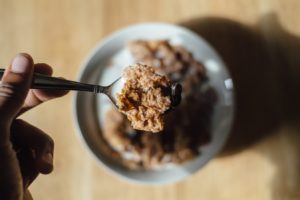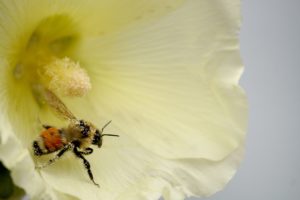The Glyphosate Debate: Should Farmers Use It?
In 2019, the Center for Environmental Health (CEH) performed a variety of tests that determined trace amounts of glyphosate (also referred to as Roundup) were present in cereals and baby food. This news concerned consumers across the country, especially after rumors circulated that Roundup causes cancer. Scientists, farmers, and consumers have debated for years whether glyphosate is toxic or carcinogenic to humans, but with so many conflicting views, consumers are now posing a different question: should farmers use glyphosate?
What is Glyphosate?
Glyphosate is an herbicide (or weedkiller) used by both farmers and gardeners. This popular herbicide is non-selective, meaning it kills nearly all plants. Now, you might be wondering why farmers would spray their crops with something that would kill them. After all, don’t we only use weedkiller on plants we don’t want?
Well, in a way, farmers don’t want these plants. Not anymore, at least.
The reason we’re finding trace amounts of glyphosate in cereal products is because farmers usually use this herbicide on grain crops. Grain crops need to be dry when harvested, or else they’ll become moldy. Glyphosate dries grains by killing the crop, allowing them to die and dry out more quickly. This process is referred to as pre-harvest crop desiccation and is used in lieu of a grain dryer. This process is also used when inclement weather is approaching and farmers need to harvest their crops early. Not only does does glyphosate dry out the grain, but it also helps less mature plants ripen so farmers can increase yields.
While this herbicide is incredibly useful for farmers, many consumers fear that glyphosate ingestion could cause cancer and other health issues. So now we pose our next question: is glyphosate toxic?
Is Glyphosate Toxic?
It depends on who you ask.
According to the Center for Environmental Health, glyphosate can cause:
- Birth defects
- A reduction in sperm production
- Damage to liver and kidneys
- Hormone disruption
- Cancer
Furthermore, the CEH warns that glyphosate exposure is even more dangerous for children because their bodies are more sensitive.
Yet, according to the Environmental Protection Agency (EPA), this herbicide is not more toxic for children. In fact, the EPA states that there is no evidence that glyphosate is toxic to our nervous or immune systems or that it causes cancer.
So you can see why consumers are frustrated and confused. Two credible bodies possess opposing views on this chemical’s health effects, and it seems as if they are at war with one another. So if we can’t definitively say that glyphosate is harmful, what should we do?
The first thing we can do is become more informed.
The Tests
The CEH tested various cereals and found that 82% tested positive for glyphosate. Below are their findings:

- Beech-nut Baby Oatmeal: 735 ppb (parts per billion)
- Gerber Single Grain Baby Oatmeal: 545 ppb
- Great Value O’s Oat Cereal: 1,220 ppb
- Honey Nut Cheerios: 557 ppb
- Trader Joe’s O’s Toasted Whole Grain Oats: 672 ppb
- Kroger Toasted Oats: 346 ppb
- Market Pantry Toasted Oats Whole Grain Oat Cereal: 826 ppb
- Malt O Meal Marshmallow Mateys: 303 ppb
- Quaker Life Original Multigrain Cereal: 1,254 ppb
- Quaker Oatmeal Squares with Brown Sugar: 2,015 ppb
- Signature Kitchens Honey Nut Toasted Oats: 762 ppb
Whether glyphosate is truly toxic to humans or not, finding traces of an herbicide in our food–and baby food–is concerning. And many consumers are feeling helpless, as if there is nothing they can do to protect themselves. But there are two things that the CEH suggests you do to limit your exposure to this herbicide.
Can you Limit your Exposure to Glyphosate?
The first thing you can do is buy organic foods. Organic fields are not allowed to be sprayed with roundup, so buying cereals and baby foods that are labeled organic could ensure you’re not consuming this chemical… But it also couldn’t. According to a 2018 study conducted by the Environmental Working Group (EWG), one third of tested organic cereal samples possessed (smaller) trace amounts of glyphosate.
The second thing you can do is petition to have this chemical banned. Kellogg’s has already announced that it will phase out the use of glyphosate on its crops by 2025.
But will this announcement hold water?
At the end of 2019, Kellogg’s announced that it would phase out the use of oats and wheat treated with glyphosate by 2025. But according to Caitlin Eannello, director of communications for the National Association of Wheat Growers, Kellogg’s never discussed this plan with its industry groups. According to Eannello, glyphosate is “very safe” and without it, Kellogg’s would probably have to stop growing because there is no alternative chemical.
Currently, the National Association of Wheat Growers is communicating with Kellogg’s to discuss their plan. But if what Eannello says is true, it seems unlikely that Kellogg’s will follow through.
Yet, just because glyphosate hasn’t been proven to harm humans, it doesn’t mean that it isn’t harmful. In fact, glyphosate has been proven to harm honeybees.
Glyphosate is Toxic…to Bees
The reason that scientists say glyphosate isn’t toxic to humans or animals is because it targets an enzyme only found in plants and microorganisms.
Yet, this enzyme is actually found in honeybees. Or, more correctly, in their gut bacteria.

According to a study conducted by the National Academy of Sciences, glyphosate affects honeybees in two ways. First, it it affects early gut bacterial colonization by reducing the number of good gut bacteria. Second, it makes bees more susceptible to diseases, such as Serratia. Scientists concluded that glyphosate weakens bees’ resistance to infection by pathogens.
Because bees help pollinate our crops, they are exposed to whatever chemicals we apply. Thus, using glyphosate on our crops will affect honeybee populations, which will in turn affect crop yields. Honeybees are essential for the production of the following crops:
- Kiwi
- Passion Fruit
- Rowanberry
- Watermelon
- Squash
- Macadamia Nut
- Brazil Nut
Those are only the crops that depend wholly on honeybees for survival. Honeybees are actually responsible for the production of 95 crops.
It’s important that we support honeybee populations because without them, our crop yields would dwindle. So even if glyphosate isn’t toxic to humans (of which we still aren’t sure), we should never spray crops pollinated by honeybees with glyphosate.
For more on supporting bees, you can read this article.











